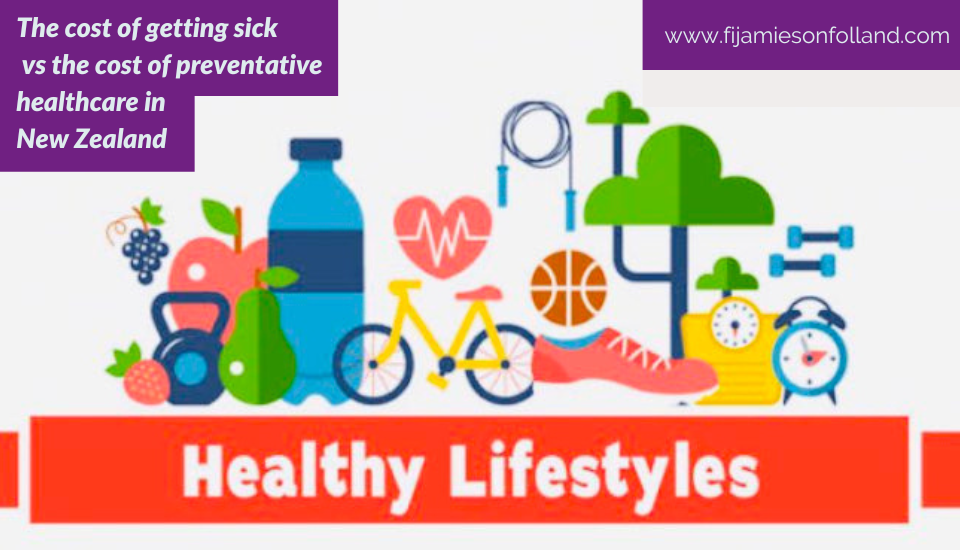The high cost of healthcare in New Zealand
The cost of healthcare in New Zealand currently is exorbitantly high, with no signs of improvement in sight. This makes it difficult for many people to access the treatments they need without a hefty price tag attached.
One case in point is that of John Hunter, an 81-year-old Tauranga man who was denied public funding for a heart procedure. The estimated cost of the procedure was around $90,000 – a substantial amount of money that he simply couldn’t afford. 1
The inability to access publicly funded treatment options has had devastating consequences as the elderly man was put in a position between life and death.
The stroke care system in NZ is highly expensive, according to the ‘Life of a Stroke Report’ published by the Stroke Foundation. On average, stroke patients incur costs of $105,000 over five years for treatments, rehabilitation and other support services. 2
The cost of treatment and care for stroke survivors can be several times greater than for other medical conditions, making it difficult for many to access.
An investigation by researchers at The University of Otago into the differences in breast cancer survival between public and private care in New Zealand uncovered some startling statistics.
According to the study, the risk of mortality was 95% lower among women who received private care than those who received public care. This finding speaks to the injustice of healthcare in New Zealand, in which access to life-saving treatments can be financially prohibitive for many. 3
These examples of high healthcare costs in New Zealand are fraught with inequality and injustice and make a very real dent in people’s pockets.
Today, the average New Zealand citizen pays an estimated 5.6 percent of their weekly income on health-care costs. This is up from 4.2 percent in 2000.
These are New Zealand specific statistics although it seems to me to be a consistent issue around the world.
Whilst this topic is upsetting, it’s crucial in my opinion that we focus on solutions to lessen this inequality and strive to make healthcare more accessible and affordable to everyone.
Is preventative healthcare a potential solution?
To me the high cost of getting sick in New Zealand and around the world, simply highlights the need for preventative healthcare.
Research estimates that up to 80 percent of chronic diseases that New Zealanders suffer from are preventable. 4
So what is preventative healthcare?
I’m using the phrase preventative healthcare, in the sense of eating quality fruit and vegetables, supplementing with optimal-level multivitamins and minerals, exercising regularly and drinking plenty of clean water. I’ve certainly found personally, and with many hundreds of clients, that each of these steps can help to reduce the total cost of our health care. I believe these findings are consistent worldwide, not simply here in New Zealand.
The benefits of buying quality fruit and vegetables
Fruits and vegetables are essential for a healthy diet, especially given they contain essential vitamins and minerals.
Studies have shown that eating more fresh, organic produce can help to reduce our risk of developing certain forms of cancer, diabetes, and cardiovascular disease. 5
In New Zealand, eating quality fruit and vegetables is becoming more expensive. There are, however, ways to save on this cost.
Shopping for produce at local farmers’ markets or community gardens, as well as joining a fruit and vegetable box delivery service, can help to reduce the cost of buying quality produce.
Another way to save on quality produce is to grow your own! There are multiple online resources and heaps of advice available for growing food at home. 5
The benefits of supplementing with a quality multivitamin and mineral
Multivitamins and minerals can be beneficial for providing essential nutrients that may be lacking in a person’s diet. 6
Common multivitamins and minerals often include zinc, iron, magnesium, vitamin C, and the B vitamins.
There are a many reasons and benefits to supplementing with a quality multivitamin and mineral. One reason is that it helps to fill in the gaps in our food due to the generally poor quality of our soil, and it also helps to prevent deficiencies, which can lead to chronic health problems. Plus it provides the body with a boost of nutrients to support general health and wellbeing.
When selecting a quality multivitamin and mineral supplement, it’s important to look for one that has a broad range of essential vitamins and minerals, is made to pharmaceutical grade, certified as fully bio available and is rigorously third party tested.
Another potential solution to our healthcare crisis is to look at how we can either direct more money to better food and supplement options or look at out-of-the-box ways to increase our income
Being wise with money and looking at increasing income
This, in essence, is another form of preventative healthcare. 7
Research has found that having financial security can lead to better health outcomes.
Whilst poor financial security can lead to elevated levels of stress and chronic illness, increasing income can help to reduce financial stress and provide greater financial security. 8
This can be achieved through a number of avenues. Part-time employment or a side hustle can be beneficial for providing extra income while still allowing us to pursue other interests.
Another option to help build financial security is investing in property or stocks and shares. 9
If you’re looking for ways to increase your income, it’s worth reaching out to connect – boosting your financial health no longer needs to be rocket science!
Conclusion
The high cost of getting sick in New Zealand has highlighted the importance of preventative healthcare. Benefiting from eating quality fruit and vegetables, supplementing with a quality multivitamin and mineral, being wise with money and looking at increasing our income, are all ways in which New Zealanders can reduce health-care costs in the long term.
Fi Jamieson-Folland D.O., I.N.H.C., is The LifeStyle Aligner. She’s an experienced practitioner since 1992 in Europe, Asia and New Zealand as a qualified Osteopath, Integrative Nutrition Health Coach, speaker, educator, writer, certified raw vegan gluten-free chef, and Health Brand Ambassador.

Facebook Instagram LinkedIn Pinterest YouTube
References:
2) https://www.stroke.org.nz/life-of-a-stroke-annual-report/
3) https://www.otago.ac.nz/news/news/otago741670.html
4) Potts, J. (2015). Chronic diseases in New Zealand: Are they really 80% preventable – and if so, is this achievable? Retrieved from https://nzmsj.com/wp-content/uploads/2015/07/NZMSJ16-64-Potts.pdf
5) Ministry of Business, Innovation and Employyment. (2018). Shopping for fruits and vegetables on a budget. Retrieved from https://employment.govt.nz/files/2018/06/shopping-for-vegetables-and-fruits-on-a-budget.pdf
6) Mayo Clinic. (2020). Multivitamins: Do you need them? Retrieved from https://www.mayoclinic.org/healthy-lifestyle/nutrition-and-healthy-eating/in-depth/multivitamins/art-20045678
7) Fox, L. (2019). How financial security correlates to health wellbeing. Retrieved from https://www.investopedia.com/articles/personalfinance/080516/how-financial-security-correlates-health-wellbeing.asp
8) Ministry of Social Development. (2018). Getting extra money. Retrieved from https://www.workandincome.govt.nz/products/a-z-benefits/extra-money.html
9) Investopedia. (2020). What is an investing side hustle?. Retrieved from https://www.investopedia.com/ask/answers/121514/what-investing-side-hustle.asp

